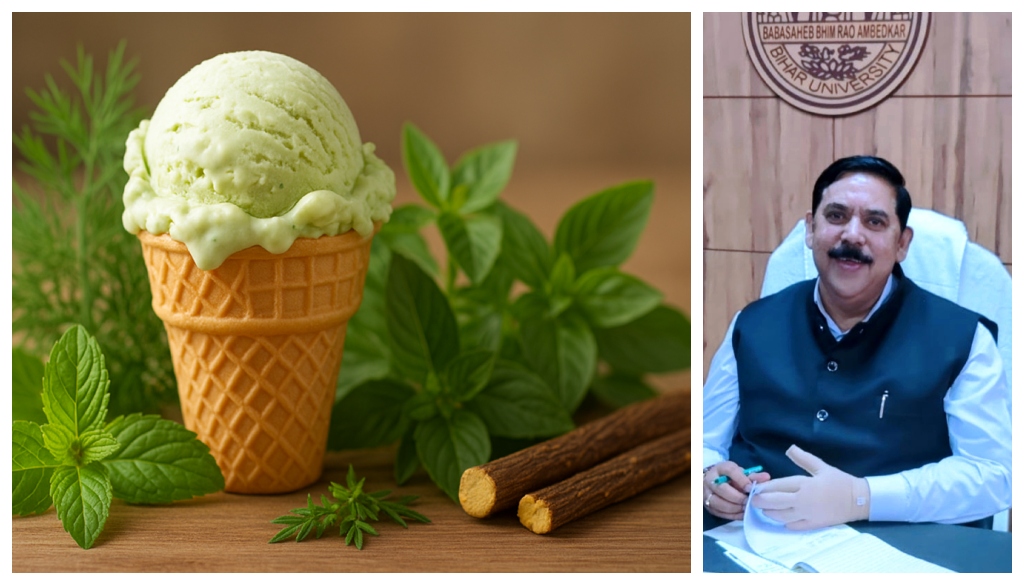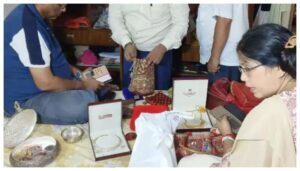BRA Bihar University Researchers Develop Herbal Ice Cream That Blends Taste With Wellness

Muzaffarpur: In a notable step forward for functional food innovation, researchers at BRA Bihar University have developed a herbal ice cream enriched with medicinal herbs such as holy basil, liquorice and fennel. Spearheaded by Vice Chancellor and food scientist Professor Dinesh Chandra Rai, the study has been published in the Q1-ranked Journal of Stored Products Research, which has an impact factor of 2.7.
The research marks Prof. Rai’s 20th publication in a high-impact journal over the past year, earning him commendations from academic peers at BRABU and institutions including Banaras Hindu University.
The herbal ice cream, designed to appeal to health-conscious consumers, was developed by blending herbs in equal ratios into a conventional base of milk, cream, sugar and stabilisers. The result is a dessert that maintains a creamy texture and flavour while offering potential health benefits. Stability and safety trials were conducted over 90 days of frozen storage, confirming the product’s shelf-life and taste integrity.
“This ice cream is more than a treat—it’s a functional food,” said Prof. Rai. “It can help manage common ailments like colds, coughs, and blood sugar levels. We’re integrating traditional herbal knowledge with modern dietary habits.”
The researchers note that this initiative not only aligns with the growing global demand for functional foods—an industry reportedly expanding by 15% annually—but could also provide economic opportunities for local farmers. By sourcing herbs from eastern India, the project may help create rural employment and support local agriculture.
The study team included Shashank Shakya, Ankur Aggarwal, Tarun Verma, Kunal Nagar, Aakash Singh and Balkrishna Singh.
Senior academics and university officials, including BHU’s Dr Sanjay Sinha and BRABU’s Prof. BS Rai and Prof. Om Prakash Roy, congratulated Prof. Rai on the achievement, describing his body of work as an inspiring contribution to both science and public health.
Prof. Rai said he hopes the project encourages further research in the intersection of nutrition and traditional medicine. “Our goal was to create a product that delivers both taste and well-being,” he said. “This is a small but meaningful step toward making health-focused foods more accessible.”





